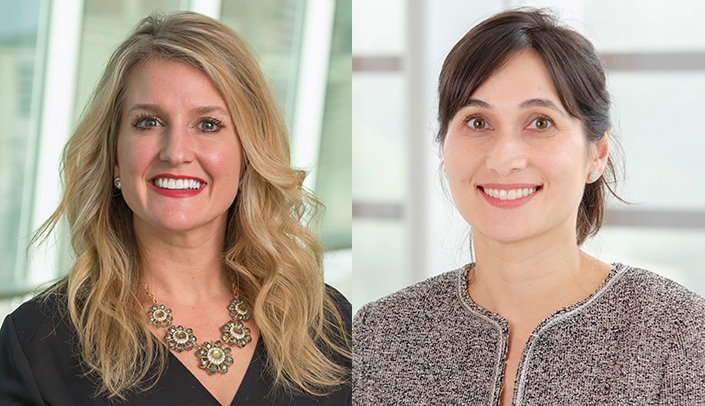In 2019, as part of the UNMC Department of Anesthesiology’s strategic plan, Sasha Shillcutt, MD, vice chair of strategy, and Rebecca Aron, MD, director of wellbeing, set out to deliver the tools that would help protect their colleagues from the perils of burnout.
Drs. Aron and Shillcutt distributed surveys in June and September 2020, asking each faculty and staff member to assess and anonymously report their levels of stress. The surveys revealed that department members felt that support for employee wellbeing was waning; about half of faculty felt they could not easily access mental health resources at work; and nearly 20 percent of those surveyed did not have a peer at work to confide in.
The surveys and the stressors of the COVID-19 pandemic expedited the implementation of three new programs in the department.
The “Battle Buddies” program, modeled after the U.S. military’s and Minnesota Health’s programs, was implemented in November 2020. Employees paired up to support one another, provide feedback and identify issues that needed further resources. The “buddies” are encouraged to check in with one another two to three times a week, or more if warranted.
“Having a battle buddy helps you affirm your experiences and identify potential stressors before they can snowball,” Dr. Aron said. “The program is designed to help employees talk about stressors with someone who maybe has a deeper understanding of those situations than loved ones outside of the healthcare professions do. That can help to keep work at work and make home time more enjoyable.”
The Peer Support Plan for Adverse Events establishes official roles and procedures for immediately responding to emotionally-charged events. Trained peer supporters and department leaders promote a supportive culture of confidentiality and emotional care over an extended period of time following the event.
When an adverse event occurs, the involved faculty member reports the event to the clinical director who can work to relieve the affected colleagues of clinical duties. Peer supporters check in with the colleague 48 hours, two weeks and six months post-event to normalize feelings, validate competence, assess needs for resources and direct as appropriate. The affected colleagues also debrief with a Peers In Need of Support (PINS) program member who provides mental health resources.
A “Be Extraordinary Together” appreciation form, modeled after Nebraska Medicine’s, debuted this January. The form allows visitors to send a note of gratitude that will be shared with the colleague and their supervisor.
“We added these measures not only because they are evidence-based and cost effective, but because they are effective methods of combatting burnout,” Dr. Shillcutt said. “Having a personal peer supporter is one of the top three tactics to avoid burnout.”

This is awesome! The department is so fortunate to have Drs. Shillcutt and Aron leading their wellbeing efforts!
Great work! This is a great example for other departments to emulate and reproduce!! We have a long way to go to get ahead of burnout and physician wellness, but these are definitely steps in the right direction.